The Impacts of Holistic Nutrition, from Healthy Soil to the Soul
It is an honor to be selected as Podcaster of the Month on Blubrry. Blubrry has been hosting my podcast for about 12 years. In their article, Grieve Explains the Impacts of Holistic Nutrition from Healthy Soil to the Soul, I talk about some of the most important issues with our food and health today. It is a complex group of issues that interferes with our health and wellness–but having optimal health can be achieved. Every body is different. Being a holistic nutritionist, I know one thing for sure–most of us just want to be healthy, feel joy, and have a great life. Here is what they wrote:
A holistic nutritionist, life coach, journalist, speaker, and host of the acclaimed podcast Food Integrity Now, Carol Grieve’s mission is to spread the message of full-body wellness. Grieve, our July Podcaster of the Month, is deeply dedicated to helping people understand the impact of their dietary choices on their overall health. Through her work, she guides individuals and groups on how to thrive by consuming quality, nutrient-dense foods . . . a challenge in today’s fast-paced world.
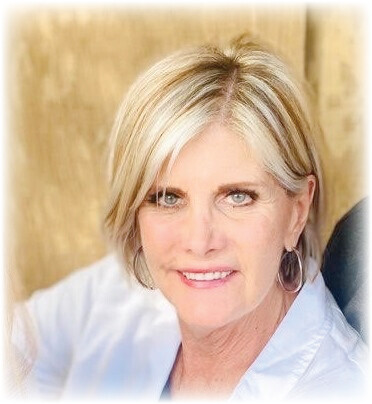
Grieve believes in the healing power of food and the necessity of harmony between the body, mind, emotions, and spirit to achieve true health. She emphasizes the importance of making informed lifestyle choices that contribute to overall well-being.
The philosophy of “Food Integrity Now” revolves around the idea that the key to improving global health lies in educating individuals to love themselves enough to make good choices. Grieve’s approach is not only about self-care but also about fostering a supportive community where people encourage each other to adopt healthier lifestyles. By promoting self-empowerment and wellness, Grieve believes we can collectively bring positive change in ourselves and in the world.
Grieve shares with us some best practices and surprising insights on what is being “sold” as healthy for humans and good for the planet, but in many cases just isn’t.
People often do not understand the difference between a dietician and a nutritionist, can you explain? Also, how would you describe a “holistic nutritionist using the functional medicine model” to a layperson?
I am a holistic nutritionist, which means that when I work with my clients, I not only assist them with their physical diet and lifestyle but also assist them to come into balance with all their bodies. This means I help them with their mental, emotional, and spiritual bodies as well. To obtain great health and wellness, it is important to address all of the bodies or the whole. That in essence is what I do as a holistic nutritionist. The functional medicine model means that we address the core issue that may be creating disease in the body, versus just treating the symptoms. There is always a reason why someone is unwell, and we get to the core or the why. Once we discover why, I assist them in making changes in their diet or lifestyle. When they make the changes that are needed to become well, that is where the magic happens. I guide them but they do the work! I also empower them to become their own healer.
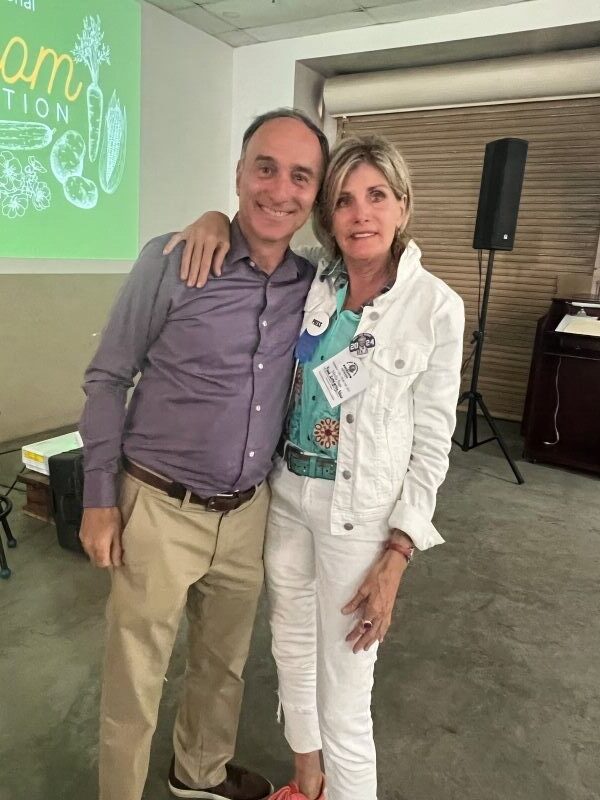
Your shows feature trailblazing and diverse experts, ranging from Dr. Dale Bredesen, a leading expert on Alzheimer’s prevention and reversal, to Jeffrey Smith, founder, and executive director of the Institute for Responsible Technology. How do you choose your topics and your guests? Do they also reach out to you?
I stay very current with what is happening in the area of health, wellness, and nutrition. When I interview someone like Dr. Dale Bredesen, who I have interviewed three times, the information is usually the most updated and latest information available at that time. For example, Dr. Bredesen is considered one of the leading experts in the world on Alzheimer’s disease. As we know, neurological and brain diseases are on the rise. Everyone knows someone with this disease, and it is so relevant. Also, Jeffrey Smith is one of the leading authorities on GMOs and his information is always relevant and current. I like to interview people who are the best in their fields to assist my audience with their health.
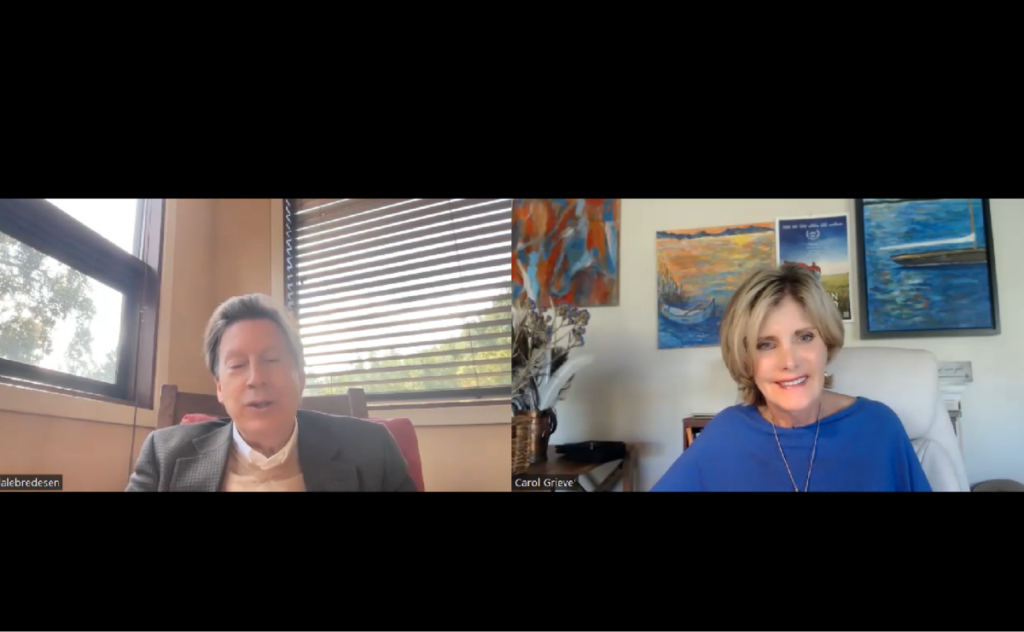
I have many publishers that ask me about one of their authors who has a current or unreleased book out. So yes, they contact me often. Sometimes I reach out to an expert myself and they see who I have interviewed on Food Integrity Now and are always eager to say yes to an interview.
The show suggests that a healthy diet comes from all areas of life – starting with the soil ranging to all-natural herbs to off-the-shelf food. How have you found that adopting this holistic approach to diet benefited your clients and listeners?
Soil is the most important when it comes to nutrient density. I encourage those who can grow some of their food to do this. This is the ideal way to eat, and they can control what goes into their soil, food and ultimately into your body. Obviously, not everyone can grow their own. The next best thing to growing your own is buying local and organic. It is very important to include as much whole foods in your diet, which includes a variety of fruits and vegetables. Everybody is different and there is not one specific diet (i.e., keto, paleo, vegan, carnivore, vegetarian, etc.) that I recommend. I work with the individual as to what is the healthiest for THEIR body. Some people do well with grass-fed and finished meats while others do well just eating a plant-based diet. It is an individual choice for them. I make suggestions as to their diets – but it is always their choice of course. One thing that is imperative is that they eat Organic, mostly! You cannot get well by continuing to put toxins in your body and there are many.

I also educate them about GMOs, glyphosate and other toxic chemicals that may be in their foods. We discuss not only their food, but what they drink, put on their skin, household cleaning products and toxins in general in their home. Again, we address the whole!
You’re also a life coach, journalist, and speaker. Was there any angle or element (or even several) in particular that inspired you to share your knowledge in a podcast?
In 2010, I realized there was a need to educate the public about what was happening in our food supply. It became apparent that many did not know about GMOs and other toxins that had invaded our foods by Monsanto, now Bayer. I was part of the GMO labeling campaign here in California as well. I started out as a food activist during this time. The more I learned, the more of a desire I had to educate those who did not know and wanted to know.
Being a life coach for over 20 years and a Toastmasters graduate, I realized that I had the confidence and skills to become a public speaker and over the years have spoken at events like the National Heirloom Expo, which is the largest whole food event in the world and other many other health and wellness events. Public speaking comes naturally to me. Doing a podcast and interviewing guests about health and wellness, which is my passion, was easy for me. I started out doing “live” interviews on a couple of different venues like Teller Netcast and Castlerock Radio and then moved to doing podcasts.
What steps do you take to prepare and schedule your podcasts?
If the interviewee is an author, I read the book and then formulate the questions. I do research on the subject and the author as well. I like to know the subject but always want to be open and curious to ask questions that I may not know the answers to. Curiosity drives me.
If you could share just one fact or figure or data point that drives home the importance of eliminating toxicity in our food supply, what would it be?
Disease is at epidemic proportions and mostly because of our toxic food supply. There is scientific evidence that if we just started eating organic fruits and vegetables, we could reduce our pesticide/herbicide toxic load in our bodies by over 98%.
Are there any trends in food integrity, and if so what are the good and the bad of those?
People are starting to wake up to what is happening with our food supply and the organic food movement is assisting with this greatly. More people are buying organic food!
A trend that concerns me is that the “fake” meat industry is on the rise. Foods like lab-grown meats and Impossible Burgers, Beyond Meat, and others have hoodwinked many into thinking they are doing something good for the planet and their health. This could not be further from the truth. Organic Regenerative Farming practices are the way out of the mess we have created with our soil and environment. I highly suggest that everyone watch the movie Common Ground to learn more about what we need to do to regenerate the soil and heal the environment.
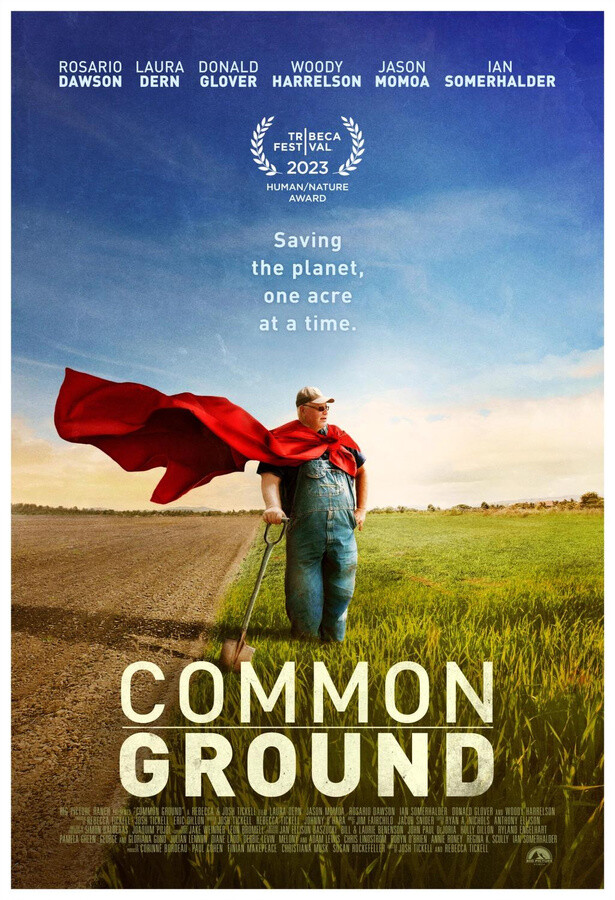
Impossible Burger is highly processed and uses much energy and some of the ingredients are toxic. The Impossible Burger uses an ingredient called heme, which makes it look like it is bleeding. The soy leghemoglobin (heme) in this fake meat that makes it look like blood is made from GMO soy. We know GMO soy contains harmful herbicides like glyphosate, a known carcinogen, and endocrine disruptor, which wreaks havoc with our health. There is much I can say about the dangers of glyphosate, and I have interviewed the best on this subject. If you search the blog, you will find many interviews and articles about glyphosate.
What do you think are the most prevalent myths about our food supply?
The most prevalent myth about our food supply is that it does not make much of a difference in your health whether you eat organic or conventional. It makes a huge difference when you eat organic. Many people have given up on their health because they may feel it is too overwhelming to eat a clean diet. I think we have given up much for the sake of convenience — i.e., fast food.
Many of your podcasts mention the dangers of GMOs (genetically modified organisms) and you even have a counter at the top of your web page. Do you consider those the greatest threat to human health? Is that just in the U.S. or is it prevalent elsewhere? If GMOs are not the greatest threat, what is?
I do think that GMOs are a huge threat to human health and our overall well-being. GMOs and glyphosate (RoundUp) are toxic to the body and that includes our brain. I have written much on this subject over the last 14-15 years. Corporate greed and corruption and their total lack of respect for human health are rampant. If enough of us would just stand up, speak up, and say, “NO MORE,” it would end. This is why I will continue to educate those who want to know. GMOs and glyphosate are prevalent in most countries, but the US has one of the worst diets in the world. We are also the sickest country in the world. This is sad but true. There is much more work to do here!
Thanks again to Blubrry for making it easier to do my work. I love being a holistic nutritionist, life coach and podcaster! Please leave a comment if you like! Be well.
You can find Food Integrity Now podcasts on Apple Itunes, Spotify, and Podbean.
Food Integrity Now on Social:
- Instagram @carolagrieve
- Facebook FINtegrity
- Twitter (X) @FINtegrity
- foodintegritynow.org
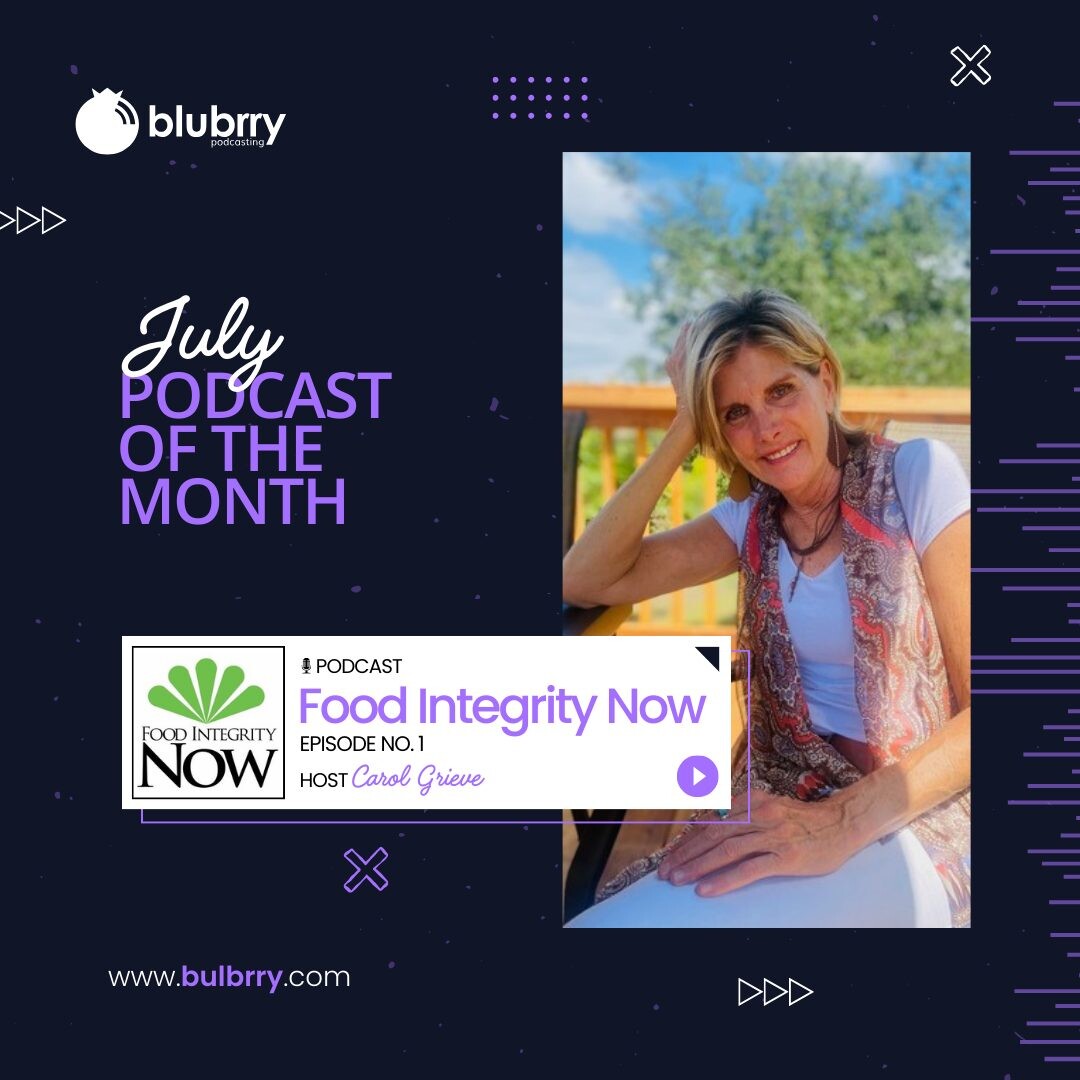
0 Comments